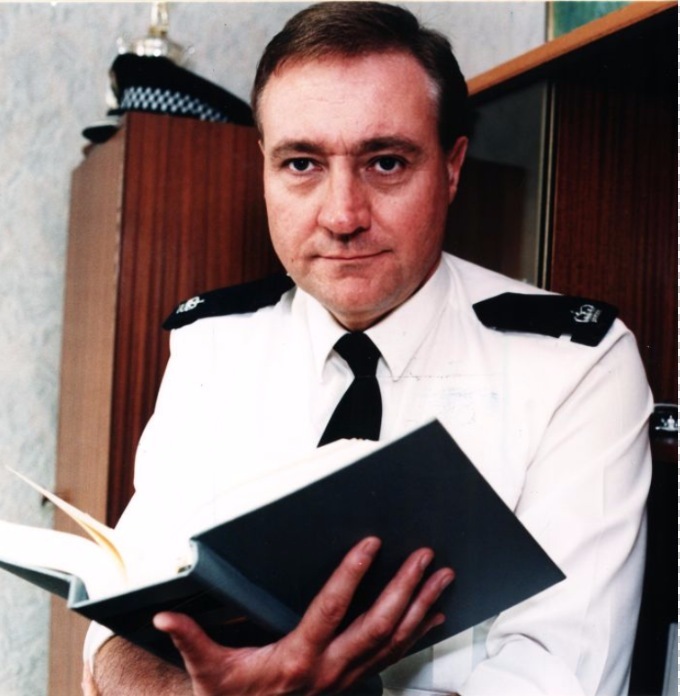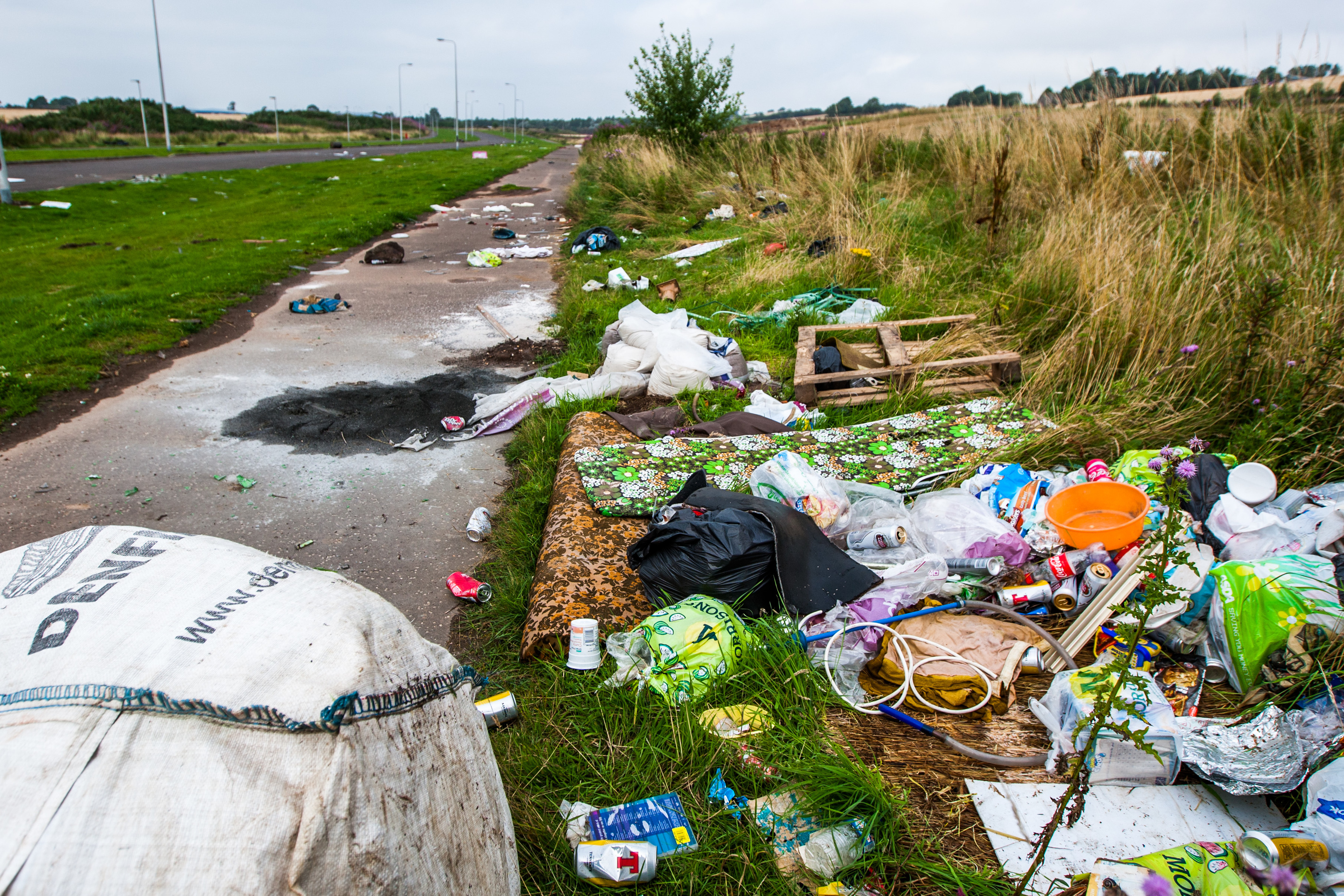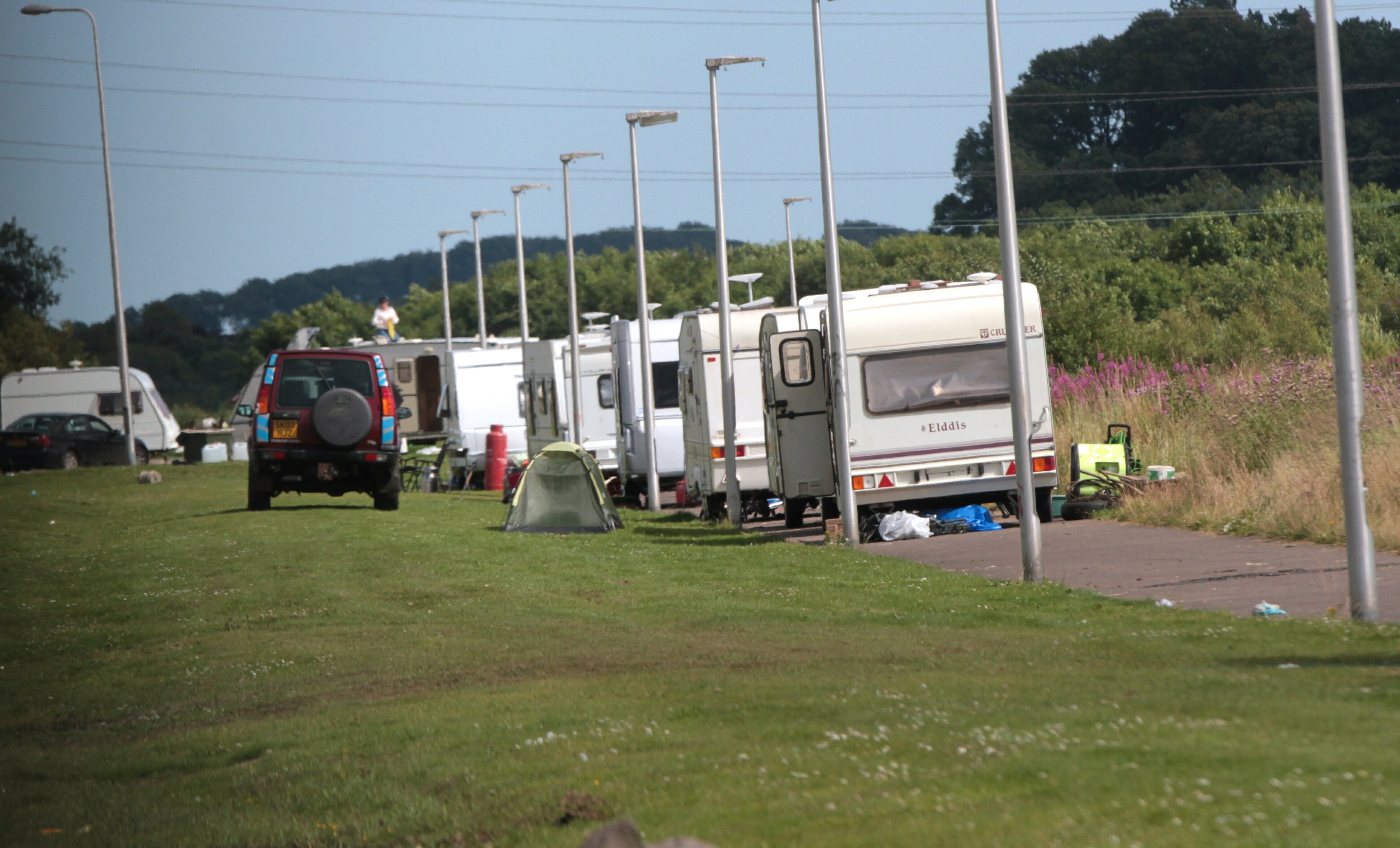
LAWS which allow police to crack down on travellers who illegally occupy land are hardly being used, it has been claimed.
It is a criminal offence for travellers to set up camp or “trespass” on private property without the permission of the landowner.
But it’s claimed there has been a softening towards the illegal settlements – regardless of their impact on local communities or whether there is an authorised camp nearby.
The relaxation in the law has resulted in a huge fall in convictions for criminal trespass.
Critics have blamed “political correctness” for the authorities’ failure to take action against travellers who set up home on private land.
Ex-cop Fred McManus, former president of the Association of Scottish Police Superintendents, explained: “Police were given the power to arrest people, who could be put before the court the next day.
“But, as time has moved on, the whole issue of political correctness has crept in.
“We still have an effective piece of legislation but there has been a definite softening of attitudes that travellers should not be harassed by the law and should be allowed to roam.
“Farmers’ fields and other private lands are often left looking like disaster zones with rubbish piling up once travellers leave.
“This could be cut out by proper use of the legislation but there doesn’t seem to be the political will to do that.”
The Trespass (Scotland) Act 1865 makes it an offence to occupy private land without the permission of the landowner.
However, figures show convictions for breaching criminal trespass laws have become rare.
In 2004/05, just after the presumption against prosecution guidelines were published, police charged 86 people under the Trespass Act but only five were convicted.
The following year there were 106 charges reported although convictions fell to four and in 2006/07 there were 85 charges and nine convictions.
Since then there has been a gradual decline in the number of people charged.
Last year the overall figure had fallen to 27 – a massive drop of 75% on a decade earlier.
None of those charged have been convicted for the crime, although the Crown Office said some cases may not yet have reached court.
Eben Wilson, of Taxpayer Scotland, said: “It’s a false economy to avoid tackling damage and interference to property; it cuts away our ability to support the activity that lets us pay taxes.”
Councils across Scotland spend millions of pounds of taxpayers’ money each year dealing with illegal camps.
Private landowners are also left to pick up the bill from fly-tipping, vandalism and other anti-social behaviour.
Chief Inspector Scott Tees, of Police Scotland’s Safer Communities team, said: “Police Scotland acts appropriately and proportionately to all reports and complaints of alleged criminality and deals with these on a case-by-case basis.”
Lynne Tammi, the Scottish representative for the National Federation of Gypsy Liaison groups, said: “It is well documented that the lack of permanent and halt sites are a principle reason for members of the community establishing roadside encampments.
“It is better to work with a community to reach agreement that benefits all citizens.”
Jamie Stewart, of the Scottish Countryside Alliance, said there were a number of “myths” about Scotland’s trespass laws. He said: “Trespass is a civil wrong in Scotland, and can also constitute a criminal offence.”
A Crown Office spokesman said it will bring prosecutions “where there is sufficient evidence and it is in the public interest to do so”.
READ MORE
Police Scotland role needs a ‘fundamental rethink’ warns top cop
Demands for legislation on Travellers

Enjoy the convenience of having The Sunday Post delivered as a digital ePaper straight to your smartphone, tablet or computer.
Subscribe for only £5.49 a month and enjoy all the benefits of the printed paper as a digital replica.
Subscribe

